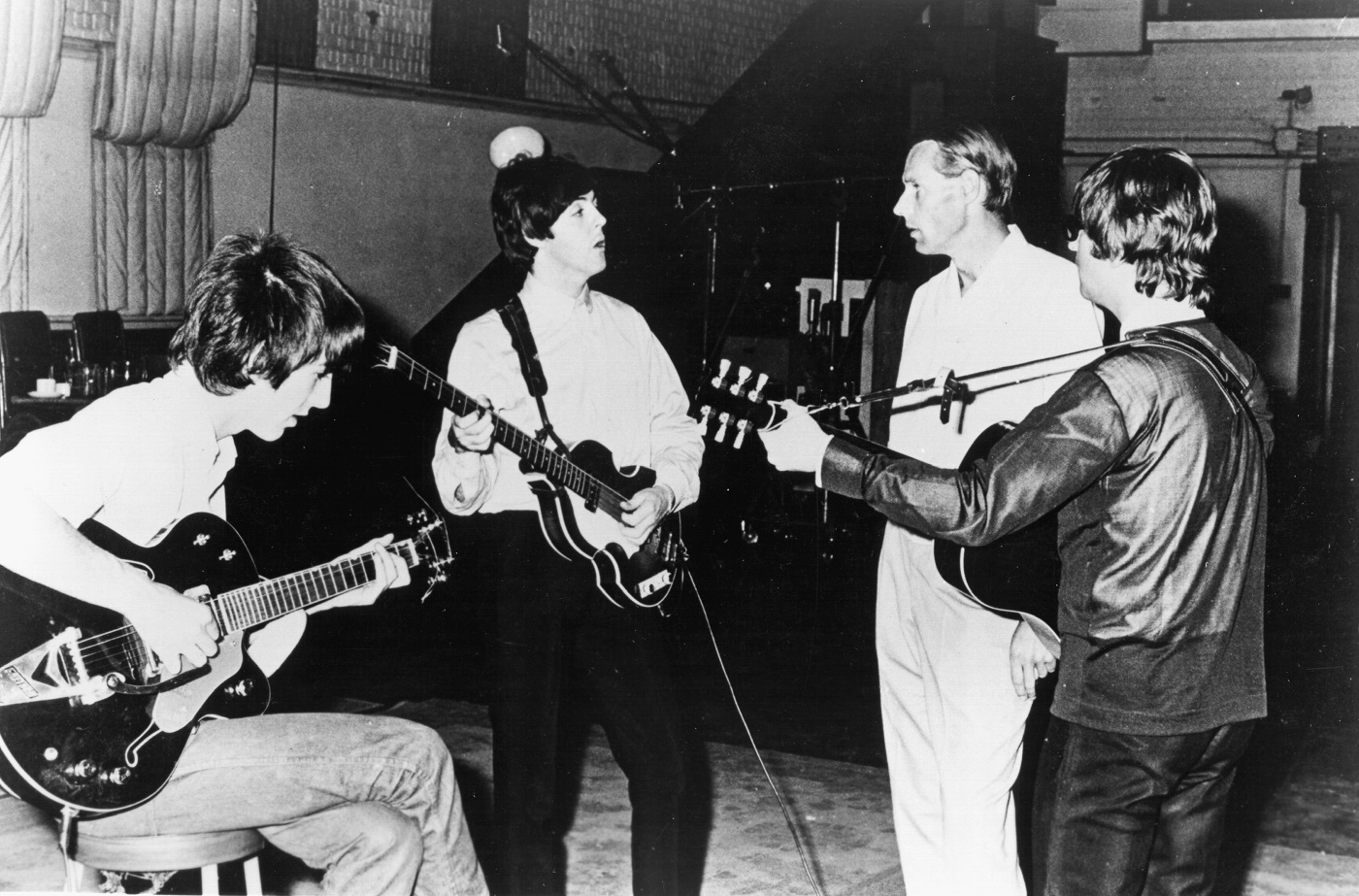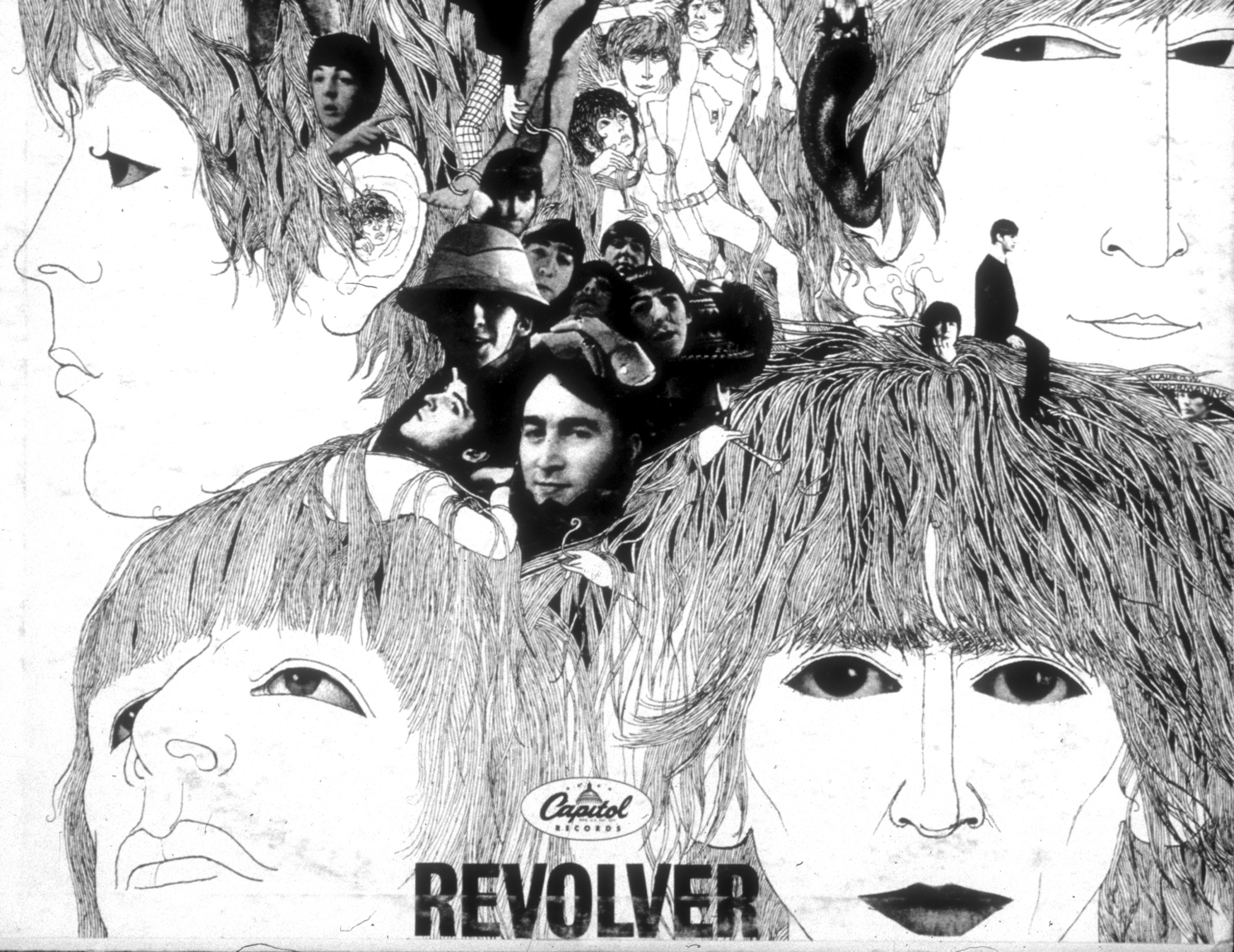The 1 Beatles Song Producer George Martin Said ‘Could Never Be Reproduced’
When The Beatles kicked off the sessions for Sgt. Pepper’s Lonely Hearts Club Band, they had decided they would become a studio band from there on out. The ill-fated Fab Four tour of 1966 convinced them that the “circus” routine their concerts had become wasn’t worth it anymore.
With live shows behind them, the band could focus solely on recording the best music they could make. And they’d never have to recreate any of the songs on stage. That was a good thing, considering a masterpiece like “A Day in the Life” would have been next-to-impossible to play live.
But that trend didn’t actually start with 1967’s Sgt. Pepper. The year before, prior to embarking on that final tour, the band had recorded its most complex work to date on Revolver (1966). And though they completed that album before the tour they never played any Revolver songs live.
Considering Revolver featured so many studio experiments, you can see why The Beatles didn’t take these tracks on the road. In fact, producer George Martin said one Revolver song couldn’t have been repeated even if the band wanted to.
The Beatles experimented with random tape loops on ‘Tomorrow Never Knows’

While “Tomorrow Never Knows” would be the final track on Revolver, the band tackled the John Lennon composition first during sessions for the album. And they threw everything but the kitchen sink at it, beginning with John’s vocal effects.
After telling the engineer he wanted to sound like the Dalai Lama on a mountaintop,” John and his bandmates considered ways to match the psychedelic subject matter of the lyrics in the sounds. And they came up with some brilliant ideas.
Maybe the biggest success was the tape loops, something Paul McCartney was experimenting with at the time. (The seagull sounds were some type of recorded noise with the speed manipulated.) After the first sessions, The Beatles all agreed to come back with tape recordings to use the following day.
“We ran the loops and then we ran the track of ‘Tomorrow Never Knows,’” Paul explained in the biography Many Years From Now (1997). “And we played the faders, and just before you could tell it was a loop, before it began to repeat a lot, I’d pull in one of the other faders. […] We did a half-random, half-orchestrated playing of the [sounds].”
George Martin said it was impossible to recreate ‘Tomorrow Never Knows’

Given that random sound selection, you would be hard-pressed to recreate “Tomorrow Never Knows” anywhere — studio or not. “I think it is a great solo,” Paul said of the loops. “I always think of seagulls when I hear it.” Producer George Martin said it was the only Beatles track they couldn’t repeat.
“It is the one track, of all the songs The Beatles did, that could never be reproduced,” Martin said in Summer of Love: The Making of Sgt. Pepper. “It would be impossible now to go back and mix exactly the same thing: the ‘happening’ of the tape loops, inserted […] willy-nilly, was a random event.”
Given the Fab Four quit touring around the time of Revolver’s release, they didn’t have to field requests for their psychedelic experiment. Of course, few would hear them play the songs at the show anyway. It turns out The Beatles hit their most creative stretch at the perfect time.


